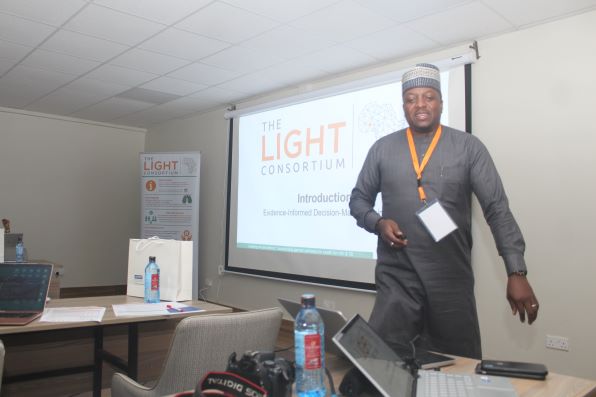By Hassan Zaggi
An Associate Professor in the Department of Community Medicine and Primary Health Care at Birmingham University, Toyosi Adekeye, has raised the alarm that men are more likely to be affected by Tuberculosis (TB) and that they are less likely to seek care.
He disclosed this at a 2-day capacity-strengthening workshop for health reporters organised by The Light Consortium with support from other partners, in Abuja, recently.
“The TB burden in Nigeria is a complex issue, we need to tackle it from multiple angles.
“We need to design policies and programs that take into account men’s health-seeking behavior and address the social determinants of health that affect them,” he said.
Adekeye emphasized the importance of understanding the gender dynamics of TB in Nigeria, stressing that: “Men’s health-seeking behavior is shaped by societal norms and expectations, leading them to prioritize work and income over health. We need to develop innovative strategies to reach men and encourage them to seek TB care.”
The Don who is also a Research Uptake Manager at the Light Consortium, reiterated that research shows that men are more likely to be affected by TB, but that they are also less likely to seek care.
He disclosed that his organization- The Light Consortium, being a research organization focused on addressing health disparities, has been working closely with the Nigerian government to develop gender-sensitive TB policies and programs.
“We are committed to supporting the Nigerian government in its efforts to reduce the TB burden in the country. By working together, we can make a significant impact and improve the health and well-being of all Nigerians.
“We have the knowledge and expertise to tackle TB in Nigeria.
“Now, we need the political will and commitment to make it happen,” Prof. Adeleke noted.
In his presentation on the topic: Data-Driven Health Reporting, the Head of Mass Communication Department, Bingham University, Dr. Desmond Onyemechi Okocha, explained that data and storytelling, combined, can make a huge difference.
According to him: “In the modern world, everything is tied to data and how you work with it. Impactful data storytelling allows healthcare providers to bridge the gap between data and decision-making, improving overall understanding of how data can influence healthcare and leave a mark on even the smallest operations and outcomes.”
Dr. Okocha, therefore, charged health reporters to embraced storytelling with data in order to drive innovation, enhance patient care, and inspire change.



